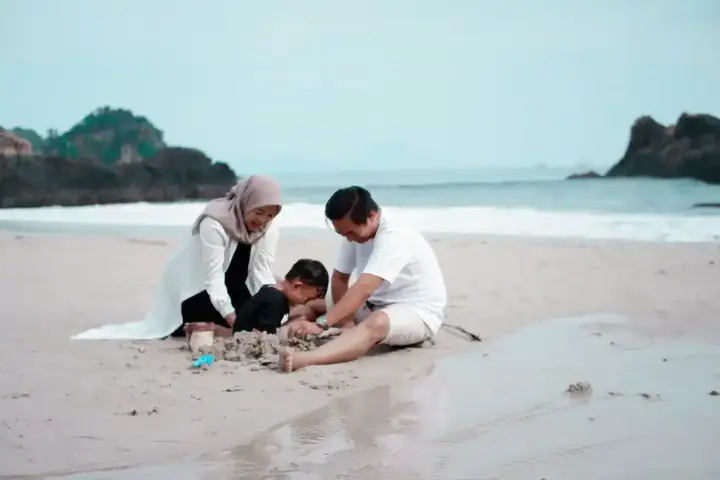Education as a myth industry: the stories we inherit and the memories we make
Raising children has always been considered one of the most profound and complex roles that a person can play. Beyond the day-to-day responsibilities of parenting, parents are uniquely placed as family storytellers. They form the narratives that define a child's understanding of the world, his identity, and his place in it. This act of storytelling can be understood as a form of myth-making, where the stories we inherit from our ancestors and those we create ourselves form the fabric of family heritage. In this sense, raising children goes beyond caregiving; it becomes an art of creating myths, shaping memories, and building legacies.
Show key points
- Parenting extends beyond basic caregiving and becomes an art of storytelling that shapes a child's memories, values, and identity.
- Parents serve as the primary transmitters of ancestral tales and cultural heritage, helping children understand their roots and societal context.
- Through everyday rituals and special traditions, families create new stories that form personal myths and enduring childhood memories.
- ADVERTISEMENT
- By framing children's challenges and achievements as part of a larger narrative, parents help them see themselves as heroes in their own life journeys.
- Stories told by parents act as vehicles for transmitting moral values, such as resilience, humility, and perseverance.
- Inherited family stories often provide strength during difficult times and connect children to a broader human experience.
- Storytelling in families creates a legacy, as the stories shared today become the myths that future generations will carry forward.
The power of stories: how does identity form?

Since the early days of human civilization, stories have been a key element in our understanding of ourselves and our communities. It teaches us values, explains the secrets of life, and preserves cultural knowledge. In families, parents act as primary channels for these narratives, conveying ancestral stories, cultural heritage, and shared beliefs. Stories told by parents – whether about how the family was founded, personal experiences, or myths that embody broader human values – are critical to shaping a child's identity. These novels answer some of the most fundamental questions children ask: Who am I? Where did you come from? What is my place in the world? Through these stories, children inherit a sense of belonging and continuity. A parent might tell a story about a grandparent who defended their country, or how their childhood experiences shaped their worldview. These inherited stories act as a bridge between generations, connecting the past with the present and giving children the foundation on which they can build their identities.
Recommend
Mythology Creation and Memory Creation:

In addition to passing on inherited narratives, parents are constantly involved in the process of creating new stories that can be seen as myths in the making, which will form part of their children's personal myths; these are the memories that children will carry with them throughout their lives, memories that will define their childhood and shape adulthood. For example, the simple act of reading a bedtime story every night can develop into a cherished memory that a child holds on to long after they grow up. Holidays, family traditions, and even the daily rituals of family life are all moments to make legends. Parents, through the lens of their children's memories, become central figures in these myths: heroes or mentors, or even imperfect characters who teach important life lessons through their flaws. As parents formulate these stories in real time, they create a common language of experience. This language becomes the framework through which children understand not only their own lives but also the lives of others.
Parents as storytellers and legend-makers:
Parents are primarily the storytellers of their families; each family has its own stories, heroes, and lessons learned from trials and adversities. Parents consciously or unconsciously participate in this storytelling process, often through the language they use to describe family events, traditions and landmarks.
• Hero's Journey: Parents often act as narrators of their children's "hero journey" through life. As children grow, they face challenges, make mistakes and learn lessons. Parents play a pivotal role in framing these experiences as part of a larger narrative arc. Parents can list a child's struggles in making friends, learning new skills, or overcoming fears as important steps in his growth and development. In doing so, parents help children see themselves as heroes in their own stories, able to overcome obstacles and achieve goals.

• Transmission of values: In stories told by parents, values are transferred. For example, a parent might tell a story about how they worked hard to achieve a particular goal, emphasizing the importance of perseverance. Or he or she may share an anecdote about a time when he made a mistake, highlighting the value of humility and learning from failure. Through these personal and family narratives, parents form the moral compass of their children, providing them with guidelines for their own lives.
Cultural narratives: It is also up to parents to convey broader cultural narratives that are part of their child's identity. Whether these are stories of religious faith, national pride or cultural traditions, parents act as guardians of their children's cultural heritage, helping them understand their place in a broader social and historical context, and connecting them to their cultural roots and traditions.
Stories we inherit:

Parents also pass on the stories they inherited. These may be tales of the struggles of past generations, often serving as a source of strength, reminding children that they are part of a breed that has survived and thrived despite adversity. These inherited stories offer lessons that transcend individual family and touch on universal human experiences. For example, the story of the family's struggle may reflect broader historical narratives of resilience. When parents share these stories with their children, they not only convey family history, but also connect their children to the larger human story.
Stories we create:

The stories we create are as important as the stories we inherit; they provide a vivid narrative in which children participate. These are the memories that shape their understanding of family, love and connection. The creation of these stories often involves rituals and traditions that families build over time. Holidays and family holidays become part of the family story. These moments of bonding and joy are the building blocks of family legends. But it's not just happy moments that create lasting stories; families also create myths about the challenges they face together. Shared hardship becomes part of the family story. When parents narrate these experiences in a spirit of purpose and reflection, they help children understand that difficult times are not the end of the story.
The end:
Raising children is an act of myth-making; the stories we inherit from our ancestors and the memories we create in our daily lives shape our children's understanding of themselves and the world around them. These stories – whether tales of personal struggle, family triumph or cultural heritage – form the basis of a child's identity, values and worldview. The stories we tell today will become the legends that our children pass on to future generations, creating a legacy that transcends time.








